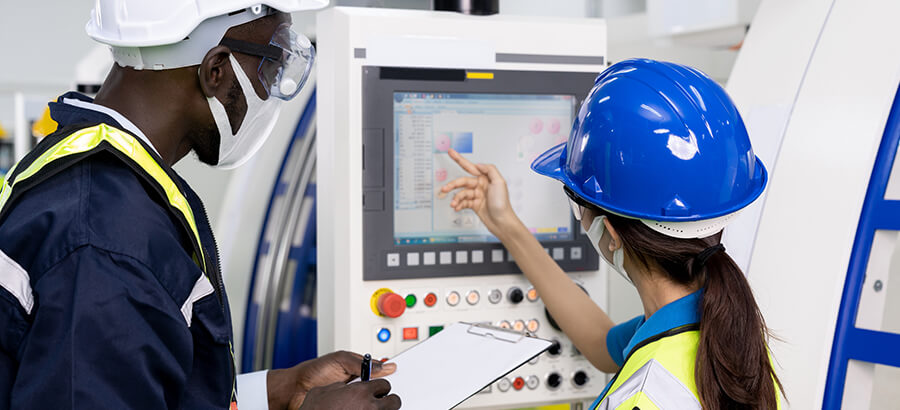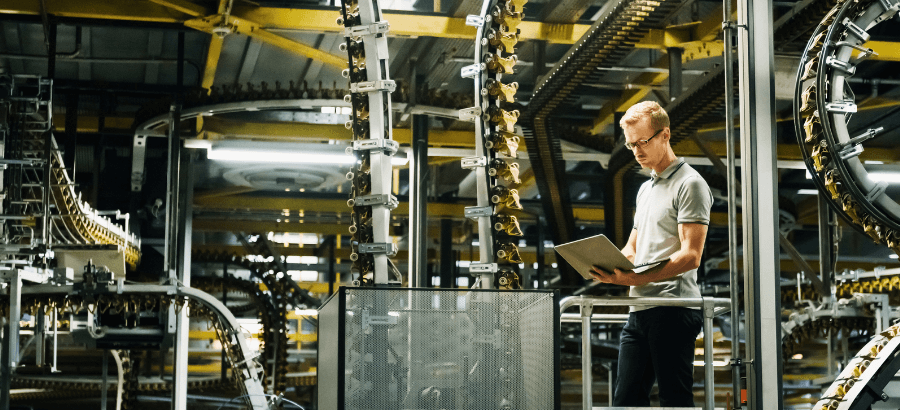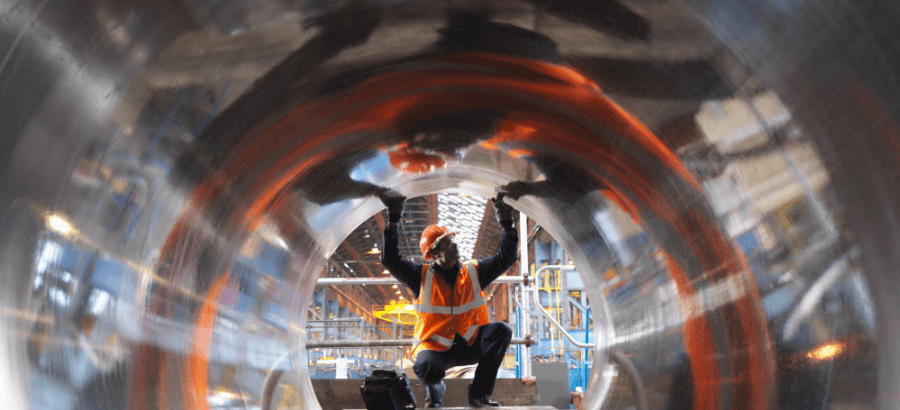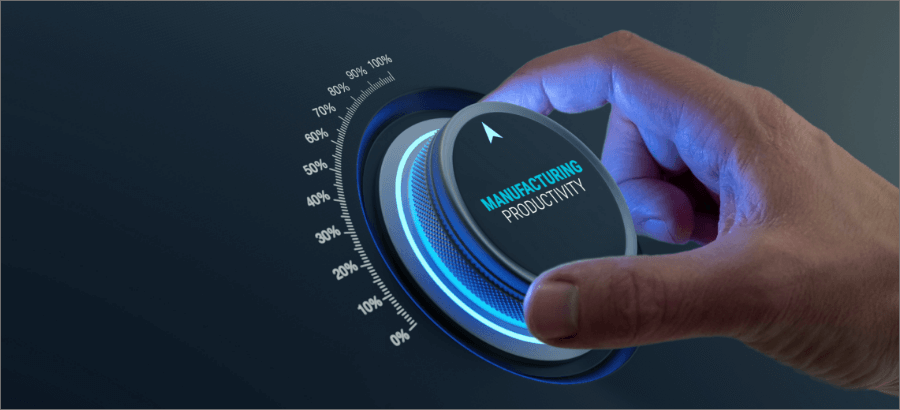Technology is causing significant transformation, and that transformation is ongoing. Primarily, organizations have sought to improve collaboration within teams, and to streamline business processes throughout the internal value chain so that different departments work more efficiently together. There is a focus on integrating the processes, transactions and information within and between functions. To achieve the goal of an integrated organization, manufacturers have to use an ERP system.
What is enterprise resource planning (ERP)?
ERP is a software system designed to help companies manage the processes and information of their businesses. ERP functionality covers many areas of a company and creates and manages business data. The data is stored and organized centrally which allows users to quickly get the required information from the system for faster analysis. With real-time visibility into the business, up-to-date information is available on the status of processes and resources, which allows a company to respond quickly to changes. This visibility can also be extended to connect and share data with suppliers and customers.
In the past, ERP software was largely installed and run in-house. But this is changing and companies are now running ERP in the cloud, where customers make use of the software that is hosted and maintained by a cloud service provider. The cloud model is attractive as it lessens the investment needed for infrastructure and IT staff to maintain the software and gives customers greater flexibility in selecting functionality that they want to use.
Justifying ERP in manufacturing
ERP systems have now been around for long enough that the benefits have become well-known. But because it requires an investment in skills and training (if nothing else, thanks to cloud ERP), most company boards need to see evidence for the return on investment.
Inventory management
An ERP system will help in managing inventory better. For example, by integrating inventory with sales and manufacturing, inventory reduction is possible, by as much as 20% or more. This is not only a one-time saving of inventory costs but there is a recurring element in terms of lower warehousing costs, handling and transportation and reduced damage and obsolescence. This contributes to further savings.
Using an ERP system that unifies the business, inventory is only purchased for a saleable product, ensuring that only useful items of inventory are stocked. One advantage is that this avoids a build-up of obsolete stock. Another advantage is that an ERP system enables better production planning, so knowing when the inventory is needed in the production process can prevent fewer shortages of parts.
Manufacturers also find an ERP system improves inventory turnover. This frees up working capital which helps to improve cash flow.
Purchasing
The procurement process can benefit from an ERP system. Because production planning is improved, forecasting requirements for items and parts is better, so the purchasing department can place orders well in time and avoid emergency purchases. As a result, they can get better terms from suppliers.
Production
No matter what type of manufacturer you are, the support that ERP software affords to the production and factory floor functions can improve manufacturing practices.
An automated Bill of Materials (BOM) keeps an up-to-date record of the items and processes needed to make a product. This provides the information for better resource and capacity planning. Changes to product specifications are updated in the BOM and with according update to product costs.
Integrating BOMs with orders enables jobs to be scheduled and the allocation of labor and machines to those jobs. This can be monitored as work-in-progress. Various production benefits flow from this.
– Reduction in rush jobs
– Ability to schedule machine maintenance without comprising production
– Improved factory throughput as machine set-ups can be managed better
– Reduced overtime as priority jobs can be scheduled accordingly
This adds up to lower production costs and reduction in unnecessary labor costs.
Sales and Customer Service
With better coordination between production and sales, new customer orders can be quoted and produced quickly and correctly. With a modern ERP solution, customers can interact directly with the system themselves to create and change orders, and get information on product delivery. This improves customer service, reduces lost sales, and increases profitability.
Accounting and Cash Flow
The accounts department can work better with an ERP system because payables and receivables are integrated with the rest of the business. Because sales and receivables are linked, there can be better follow-up on receivables, such as outstanding accounts, which improves cash flow. Because procurement is managed better, companies can make use of trade credit which leads to a reduced requirement for cash.
How an ERP system helps with product recalls
The failure to handle a product recall successfully can have serious economic, legal and reputational consequences. A modern ERP solution will have the functionality to help with recalls, including practice recalls, and measure recall processes so they can be improved. The system must be able to:
– determine where products originated;
– the location of the products in question and how to get them returned, wherever they are;
– provide information to regulatory agencies and customers.
Traceability is a critical ERP capability to support fast, accurate and documented product recalls. This requires lot tracking that enables forward and backward tracing to determine the problem down to the lot level. It will also require workflows and controls to ensure that proper business processes are being followed in accordance with regulations.
Benefits of an ERP system for manufacturing
There are many benefits that an ERP system can bring. Some of these are quantifiable. However, there are other important benefits that may not be so easily quantified. By combining process automation and centralized data storage with an ERP solution, a business can reduce mistakes and operating costs, and improve efficiencies, and so increase profitability. How companies adopt technology and use it will define how they perform in the future.
Streamline manufacturing processes with ERP
SYSPRO Manufacturing helps organizations streamline manufacturing processes and apply best practice to improve business efficiency and performance.








3 thoughts on “The benefits of ERP for manufacturing”
Thanks for sharing the good article with us
Thanks for the good article
It’s good to know that an ERP system can help with things like inventory management and accounting. I think that would help make your employees less stressed out and more efficient. Thanks for detailing the benefits of ERP software.